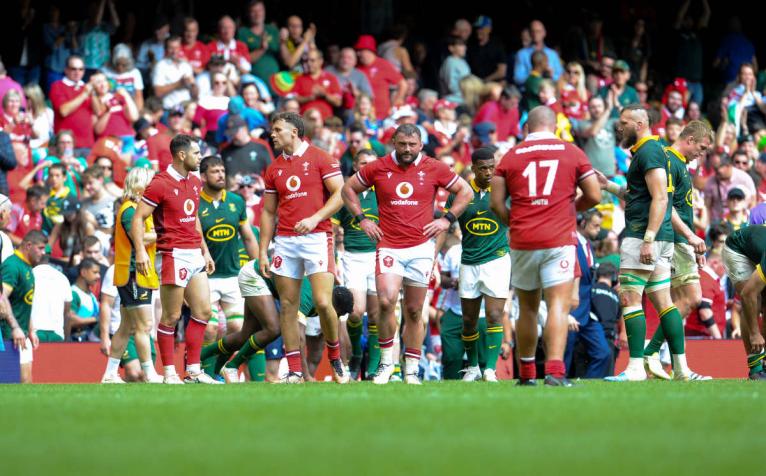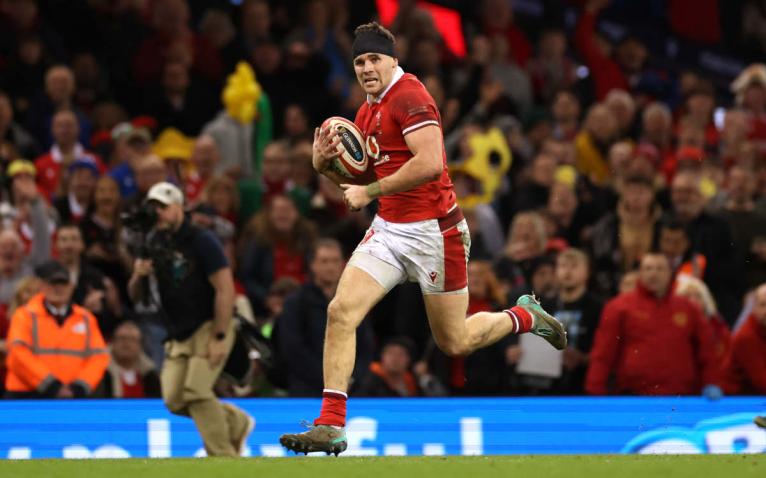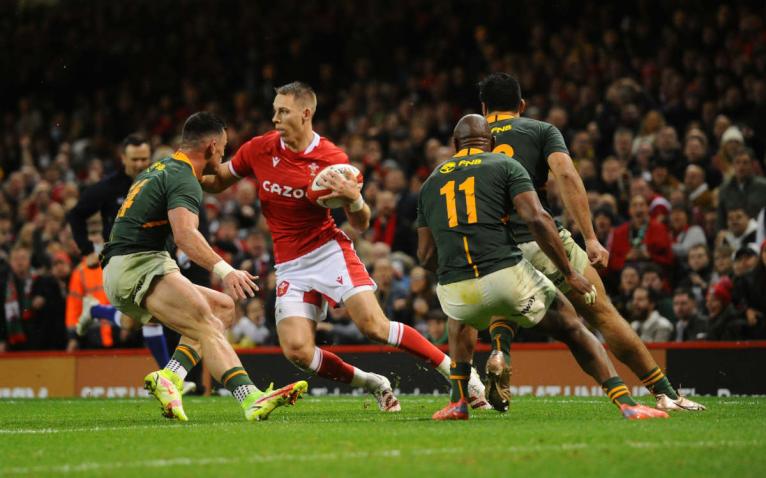On the weekend that Wales begin their latest round of rugby Tests, barely 10 miles away Taylor Swift will be taking the stage for the Wembley leg of her tour.
Cruel Summer? No, it isn’t guaranteed that the next four weeks for Warren Gatland’s team will mirror the title of the American’s 2019 hit, but it seems reasonable to suggest there may be the odd pessimist out there who will feel otherwise.
Wales open with a date against South Africa at Twickenham on Saturday, followed by Tests against Australia in Sydney and Melbourne and an end-of-tour date with Queensland Reds in Brisbane.
First, the good news for Warren Gatland. The Springboks are missing a glut of players, among them Willie Le Roux, Damian Willemse, Kurt-Lee Arendse, Lukhanyo Am, Cheslin Kolbe, Handre Pollard, Gerhard Steenkamp, Steven Kitshoff, Wilco Louw, Jean Kleyn, Lood de Jager, Marco van Staden, Siya Kolisi, Elrigh Louw, Cameron Hanekom and Jasper Wiese. For the avoidance of doubt, that’s an awful lot of quality to be without.
Australia? They are only just above Gatland’s team in the global rugby rankings and failed to emerge from their World Cup pool last autumn. Like Wales, they are rebuilding and short on confidence.

Next, the tidings that aren’t so great. South Africa may be minus a raft of top-liners but their game has almost matchless depth and the side chosen for this weekend looks frighteningly strong, with Ox Nche, Malcolm Marx, Vincent Koch, Eben Etzebeth, Franco Mostert, Kwagga Smith, Pieter-Steph Du Toit and Evan Roos making up a forward unit that has a blend of power, height, mobility and experience.
Very good opposition packs might struggle to deal with the eight Rassie Erasmus is putting out, and it is far from certain the Welsh forwards fall into the category of being very good.
A backline containing Faf de Klerk, Andre Esterhuizen, Jesse Kriel, Makazole Mapimpi and Aphelele Fassi is none too shabby, as well.
Wales will need to up their game, then, if they are to arrest a dire run that has seen them lose six in a row, with five of those setbacks coming during a Six Nations campaign that started badly, refused to ignite in the middle and ended with a home defeat by Italy.
And, for all their recent woes, Australia under new head coach Joe Schmidt may prove harder to beat than many expect. This writer once sat in front of the then Leinster team boss Schmidt for a game at the Liberty Stadium in Swansea. His ability to predict what the referee would do next and what the Ospreys would come up with was almost uncanny.
As the game wore on, the future Ireland team boss managed proceedings from the stand with the skill and foresight of a chess grandmaster, thinking two or three moves ahead, while a man with a reputation for being occasionally uptight was calmness personified, even when big decisions were going against his side. You left the stadium thinking that if he were in charge of the Dog & Duck Thirds he would make a decent side out of them.
So make no mistake: while his relationship with the media in Ireland may have eventually soured, he is a very capable coach, one of the best and most thorough in the business. Australia can expect to benefit from having him at the helm.
Wales will need to up their game, then, if they are to arrest a dire run that has seen them lose six in a row, with five of those setbacks coming during a Six Nations campaign that started badly, refused to ignite in the middle and ended with a home defeat by Italy.
📸 Getting the admin sorted
🗓️ June 22: De Affrica v Cymru
🎟️visit Ticketmaster https://t.co/aesdqK9IV7 pic.twitter.com/NTY2NUYCss
— Welsh Rugby Union 🏴 (@WelshRugbyUnion) June 13, 2024
Not even Gatland, whose skill as a coach helped transform Welsh fortunes during his first stint in charge, could improve matters. Even in selection, the area where he had built such a towering reputation, there were questions. Young players were thrust onto the frontline before they were obviously ready for the Test game, certain older players were left out completely, Nicky Smith among them. Wales were disjointed, short of power and forward ball-carriers, vulnerable in key areas and lacking creativity. Injuries and retirements didn’t help, but as important as those variables were, they weren’t the whole story.
Gatland’s management team needed some good fortune this week, then. Instead, they announced on Tuesday that Jac Morgan would miss the summer games because of a hamstring injury. James Botham comes in at openside against South Africa and is guaranteed to battle, but with his low-to-the-ground carrying, leadership, expertise at the breakdown and repeatability in defence – 43 tackles in his final two games of the season for the Ospreys – Morgan will be a tough act to replace. Gatland will console himself that Tommy Reffell will be available for the games in Australia, but, still, the Wales coach would have wanted to have Morgan around.
Scrum-half Ellis Bevan may prove a fine player in time, but he has started only 10 games for Cardiff. By contrast, Faf de Klerk has begun two World Cup finals and featured in 55 Tests all told for South Africa
There are even bigger problems elsewhere. Wales’ second-row maladies are assuming epidemic proportions, with eight locks off limits for the game with the Springboks. The last men standing include Ben Carter and Matthew Screech, so the Dragons pair are pitched in against Etzebeth and Mostert. Best of luck with that.
It would have been good to see if Henry Thomas were the scrummaging answer at tighthead, but injury has ruled him out of the opening Test of the summer, with Keiron Assiratti coming in as replacement and Scarlets youngster Harri O’Connor featuring on the bench. Assiratti has improved over the past year, but Nche is arguably the most destructive loosehead in world rugby, a man who specialises in propelling opponents backwards at high speed. If Wales’ scrum manages to avoid major problems this weekend, medals should be struck for all concerned.
Then there’s half-back, where Wales look shy of game-controlling authority and experience. Scrum-half Ellis Bevan may prove a fine player in time, but he has started only 10 games for Cardiff. By contrast, Faf de Klerk has begun two World Cup finals and featured in 55 Tests all told for South Africa. It would help Bevan if he had a seasoned campaigner outside him, but Sam Costelow is still proving himself at elite level. Those trying to find an area of the side that inspires complete confidence need to look elsewhere.

There is potential in the back three, with the return of Liam Williams strengthening Wales in the air, while it will be interesting to see how Mason Grady and Owen Watkin go in midfield. For some, Grady has been the missing piece in the Welsh three-quarter jigsaw with his power, pace and ability to offload; for others, he lacks game awareness and makes questionable decisions. Undoubtedly, there is promise there with his athletic gifts, but he is still something of an unknown quantity on the Test scene. An outing against Kriel and Esterhuizen will tell us more.
At least he’ll have the likes of Watkin and Williams to offer reassurance should things not go to plan.
Cameron Winnett should also benefit from the presence of the 89-cap Williams. The youngster’s class stood out in the Six Nations like a beacon on a dark night. He was quick, brave in defence and willing to run, but at 21 he is still learning. Having the seasoned Williams alongside him will only be a positive.
The question for all the backs is whether they will see much quality ball.
For Saturday, Gatland is unlucky to be without his first-choice locks, two best opensides and the injured scrum-half Tomos Williams, who had a fine season with Cardiff. The New Zealander called it a “great opportunity” for others to come in and put their hands up. It’s a positive way of assessing matters and you wouldn’t expect Gatland to adopt any other mindset, but, privately, he will understand the scale of the challenge.
What else is there to say? Rewind 26 years and Wales were rated 25/1 underdogs against the Springboks, just five months after losing 96-13 to the same opposition in Pretoria. Their then newly appointed coach Graham Henry walked into the dressing room without saying a word, opened a window at the far end and addressed a group of players he barely knew. “You can win,” he said, crisply and decisively.

With three minutes left of normal time, Wales were three points ahead, before South Africa hit back to take the spoils. But what an effort it was by Henry’s players that day.
It’s hard to imagine Wales coming close this time. But is it asking too much for a glimpse of a brighter future? That is surely the minimum requirement from the next month.


Comments
Join free and tell us what you really think!
Sign up for free